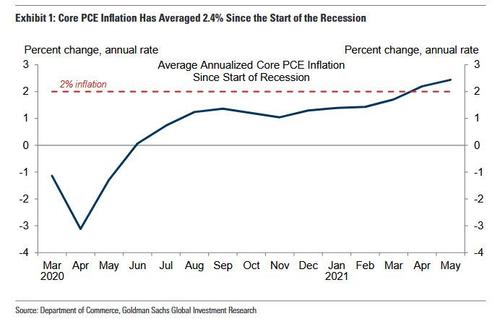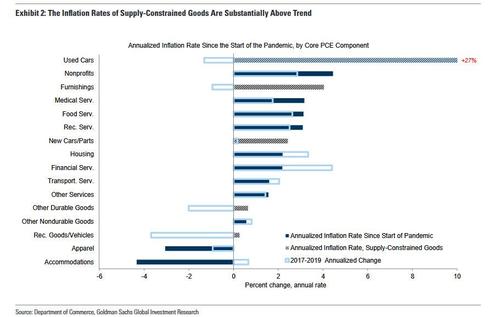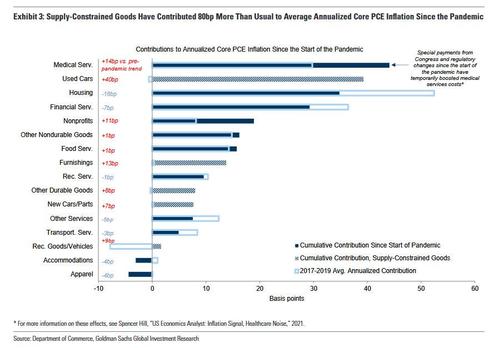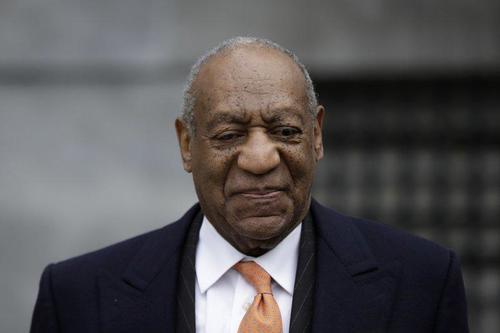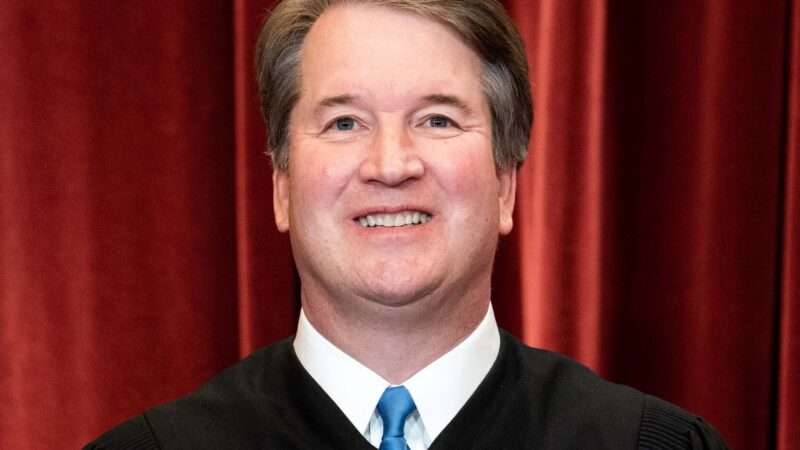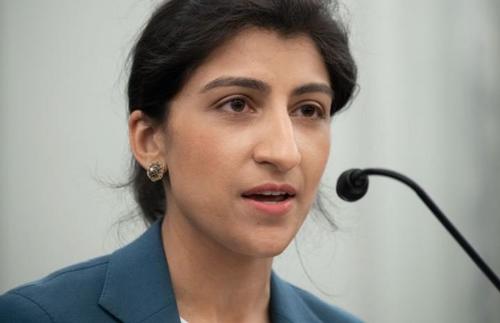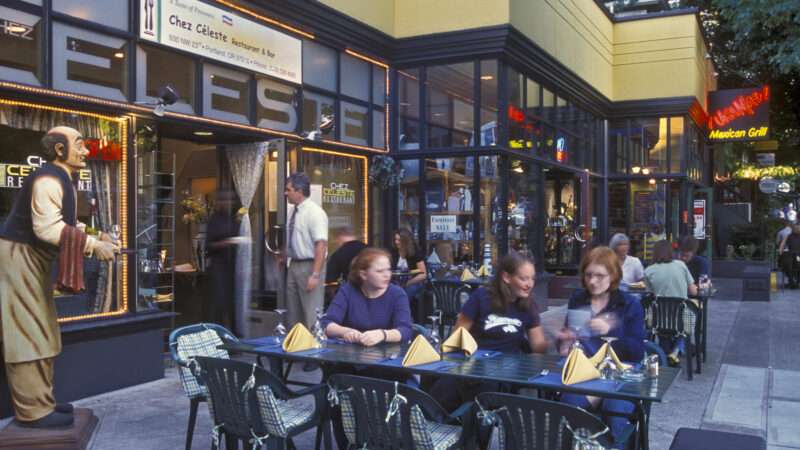
Staying cool in Portland, Oregon, for the past few days would have been challenging even in normal circumstances. Gloriously temperate summers are supposed to be the payoff here for slogging through the rainy gray winters, but on Monday, a record-shattering heatwave culminated with temperatures rising all the way up to 116 degrees Fahrenheit.
That’s hotter than has ever been recorded in Atlanta or Houston, cities where buildings are designed for that kind of heat. The handful of Portland bars and restaurants with air conditioning up to the task would have been rewarded with booming business on these days if not for one thing: the state’s COVID restrictions, due to expire today, were still limiting their indoor spaces to half capacity. Few industries have been as hard hit by rigid and often-nonsensical pandemic policies over the last year as the service sector. This week’s failure to adjust at a time when it might have helped both businesses and patrons is just one more blow to the state’s struggling bar and restaurant scene.
The heat drove many hospitality businesses, particularly food carts, to shut down preemptively. Others made a go of it but threw in the towel when refrigerators failed, doughs over-proofed, or kitchens got too damn hot. “Eighty percent of places we’re associated with had to close either because it was so hot that it was unsafe to have people inside or because the equipment got so overwhelmed that we couldn’t keep food at temperature,” says Kurt Huffman, owner of ChefStable, a group that partners on operations with some of the city’s most well-known restaurants.
Businesses in newer buildings with efficient air conditioners, such as ChefStable’s beer bar Loyal Legion, were able to stay open. “We had employees that were asking us to stay open during the heatwave because it was so much cooler than their homes,” Huffman says. Loyal Legion could have provided a beery oasis for more than 200 Portlanders, but state restrictions cut its capacity in half. (Exceptions are available for restaurants that screen guests by vaccination status, a step many have been reluctant to take.)
The intense heat reversed pandemic business trends, rendering outdoor dining setups worthless and putting cool indoor spaces at a premium. “This weekend was bonkers,” says Israel Morales of Russian restaurant Kachka, a success he credits to having really good air conditioning and a slushie machine. “We were at max capacity from open to close.” The catch? Maximum capacity was just 30 people. With half of his dining area in a suddenly intolerably hot outdoor space, he lost half his potential business. He could have welcomed those guests inside if not for Oregon’s lingering COVID rules.
Oregon is one of the last four states in the country to fully re-open. Governor Kate Brown announced on Friday, June 25, that the state would reopen no later than June 30. While that was a welcome development for Oregon businesses, it also raised the question of what purpose was served by not opening a few days earlier when it was obvious the state was about to get scorched.
Some policies were changed, most notably Oregon’s oft-ridiculed ban on self-service gasoline; this regulation was sensibly waived so that station attendants wouldn’t have to suffer in the heat. (What this implies about the necessity of the ban in the first place is a topic for another day.) The state also lifted capacity limits in shopping malls, movie theaters, and swimming pools. That was better than nothing, but why not go all the way?
There wasn’t a hard scientific justification for waiting. Oregon had planned to reopen when 70 percent of adults had received at least one dose of a COVID vaccine, a goal the state expected to meet by June 21. That date came and went as the pace of vaccinations slowed to a crawl. With the rate at 69 percent, Governor Brown committed to opening when the initial goal was reached or on June 30, whichever came first. Explaining her reasoning, she said, “Obviously businesses and venues need certainty in terms of reopening.”
Brown was right to recognize that the pragmatic benefits of reopening outweighed the desire to precisely meet a semi-arbitrary vaccination benchmark. Yet she also failed to be pragmatic enough to see a historically unprecedented weather event as a compelling reason to accelerate the schedule further. With cases low and vaccinations on the cusp of 70 percent, it would have been hubristic to assume that an extra four days of compliance with social distancing mandates would have any meaningful effect on the course of the pandemic. At the same time, the costs imposed on businesses and consumers were obvious and predictable. Having already waved the white flag on opening regardless of the vaccination metrics, the sensible thing would have been to liberate businesses to adapt to the extraordinary temperatures.
The case for reopening was particularly strong in Multnomah County, where Portland is located. The county was at a 71.4% vaccination rate as of the 26th, comfortably exceeding Brown’s statewide goal, with a seven-day average of only 29 new cases. Yet businesses in the state’s largest population center were forced to delay fully reopening due to low rates in other areas. As Morales noted in frustration, “I’m getting penalized for some of the counties on the borders of the state.”
Needlessly waiting a few extra days wasn’t following the science, it was losing sight of tradeoffs. The Cato Institute’s Ryan Bourne, author of the recent book Economics in One Virus, notes that this has been a persistent error throughout the pandemic. “This general problem of tardiness in adjusting policy has meant certain mandates or business capacity restrictions being left in place even when the additional risks of COVID-19 transmission from relaxing them would be vastly exceeded by the benefits,” he says. “There’s been far too rigid a focus on arbitrary COVID-19 case targets or expiry dates even as new information, variants, events, or conditions have fundamentally altered the balance of costs and benefits of the restrictions.”
Policy decisions should obviously be guided by data, but good governance also depends on knowing when to let go. One lesson authorities should take from the pandemic is humility, a recognition that uncertainty abounds and that their power to control such a complex event is limited. When rigidly technocratic adherence to metrics leads to absurd policy outcomes, leaders should step back and reconsider.
That failure to think economically has become a point of frustration for Huffman. Though he was among the first local restaurateurs to close in the early days of the pandemic, he bristled at a third (brief but disruptive) shutdown in April. “The state has been incapable of taking a stand,” he says now of government officials’ obstinate reliance on metrics and deadlines that forced air-conditioned bars and restaurants to turn customers away in 116-degree heat just two days before Oregon fully reopens. “Nobody’s ever had the courage to come out and say this is silly.”
from Latest – Reason.com https://ift.tt/3yf3pjb
via IFTTT
